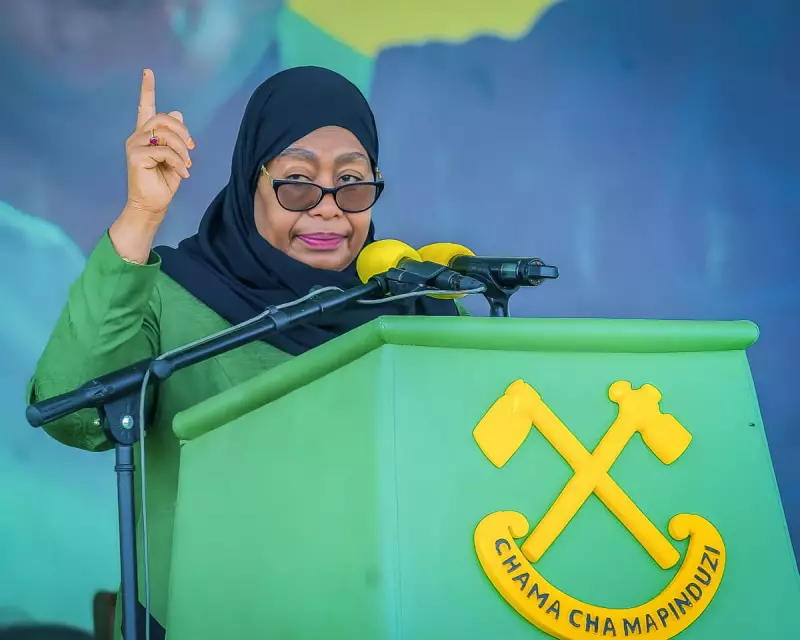
Tanzania's electoral commission has declared incumbent President Samia Suluhu Hassan the landslide winner of the country's contentious presidential election, a result that has ignited violent protests and allegations of widespread electoral manipulation.
Overwhelming Victory Amidst Controversy
According to official results released on Monday, President Hassan secured a staggering 84% of the vote, a margin that opposition leaders immediately denounced as mathematically impossible and politically manufactured. The National Electoral Commission reported voter turnout exceeding 70%, though independent observers have questioned these figures.
The announcement follows days of intense political tension across the East African nation, with security forces deploying tear gas and live ammunition against protesters in several major urban centres.
Opposition Rejects Results
Leading opposition candidate Tundu Lissu of the CHADEMA party has categorically rejected the outcome, describing the election as "the most fraudulent in Tanzania's history." In a fiery press conference from an undisclosed location, Lissu called for peaceful civil disobedience and international intervention.
"The numbers they have announced bear no resemblance to the will of the Tanzanian people," Lissu stated. "We have evidence of ballot stuffing, voter intimidation, and the systematic disenfranchisement of opposition strongholds."
Violence Erupts Across Nation
The declaration of results has triggered the most significant civil unrest witnessed in Tanzania in recent years. In Dar es Salaam, the economic capital, running battles between police and young protesters have left several districts paralysed. Similar scenes unfolded in Mwanza, Arusha, and Mbeya, where demonstrators burned tyres and erected barricades.
Human rights organisations have reported at least five fatalities and dozens of injuries during the post-election violence. The government has imposed internet restrictions in what critics describe as an attempt to suppress documentation of the crackdown.
International Reaction
The international community has responded with cautious concern. The European Union election observation mission noted "significant irregularities" in the voting process, while the United States Department of State has called for transparency and restraint from all parties.
Regional bodies including the African Union and the East African Community have appealed for calm, though their statements stopped short of challenging the official results.
Historical Context
President Hassan, who ascended to power following the death of her predecessor John Magufuli in 2021, had positioned herself as a reformer who would reverse her predecessor's authoritarian tendencies. Her campaign emphasised economic recovery and democratic reforms, promises that now face intense scrutiny.
This election marks Tanzania's first presidential contest without an incumbent candidate from the ruling CCM party since the restoration of multi-party democracy in 1992, though the outcome suggests the party's six-decade grip on power remains unshaken.
As tensions continue to simmer, the nation stands at a critical juncture, balancing between political stability and democratic legitimacy in one of East Africa's most important economies.





